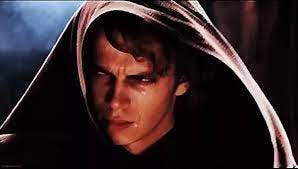Problematic Toxic Masculinity Tropes #2
Grow a Pair
Have you all seen the satirical short on College Humor that they call “Crippling Levels of Manliness?”* It’s a mock commercial about a fictional whiskey called Pappy Jack’s. It begins as a pretty typical ‘Murican manly-man type ad, banking on all the dudebro stereotypes we’re all used to seeing, ad nauseam (see what I did there). But it quickly and cleverly subverts toxic masculinity tropes, when the star of the ad begins to question the ad’s narrator…
What ensues is a funny but also kinda touching dialogue between the narrator and the ‘manly’ man in the ad. “I have no idea what this tastes like,” our protagonist laments, when faced with a ‘girly’ cosmopolitan. “I don’t own anything pink. Am I afraid of a color?!” Of course, those of us who aren’t afraid of a pink drink will know how strong a punch a cosmo can pack, manly man or no, and by the end of the ad the star drunkenly reconsiders every masculine trope he’s ever been complicit in: mourning, “I never told my dad I loved him. I love you Dad!”
*I’ve included it in its entirety at the bottom of this article. Yer welcome.
And it’s this vulnerable moment that I’d like to focus on for our second Problematic Toxic Masculinity Trope: Grow a Pair. The main character’s emoting at the end of the ad is a subversion of a classic ‘manly’ stereotype, all the more funny because it’s a ‘girly’ drink that pushes him over the emotional edge. (We’ll talk in more detail about the fear of appearing feminine in PTMT #5: Sassy Gay Friend, but it’s pertinent here too). And, as we know from our previous series of Problematic Badass Female Tropes, anything connected to femininity is inherently BAD, right?
Grow a Pair
At the center of this problematic trope is the age-old premise: Boys don’t cry. Not only should boys not cry, but by the time they’re grown, they better not show emotion at all. Or, as our lumberjack-shirted cosmo drinker exclaims, “I’m in a psychological prison of my own making!”
There are countless pop culture and literary examples of this trope, but you’ll find most of them in action-related subgenres (they also crop up elsewhere, of course, for example: ‘romantic’ stories like Remains of the Day, wherein the concept of not showing emotion equates virtue). But the stoic, stone-faced action hero is prevalent everywhere. If he shows emotion at all, it’s brief and fleeting, and when he needs to get shit done, there’s no room for any emotion or attachment whatsoever. Westerns are a prime example of this, as are other warrior-class stories like the badass samurai of yore, both of which influenced one of the most impactful stories ever told, with a global popularity that made seismic changes to culture everywhere: Star Wars and its hero caste of the Jedi.
Emotions = Dark Side
The main tenet of the Jedi order is: control. In other words, any boy (and it is very angled towards boys) who enters the Jedi Order is trained to control his emotions. After all, fear becomes anger, anger becomes hate, and hate leads to the Dark Side. So there’s no emotion allowed in the Jedi Order, and certainly no attachment to another human being, especially a woman. Excellent video “The Case Against The Jedi Order” by Pop Culture Detective Agency* dives deep into this concept, showing how Anakin’s inability to swallow and ignore his strong feelings for the women in his life (his mother and his love), is what causes his descent into becoming the most evil despot in the galaxy, Darth Vader. The expression of his strong and deep emotions and his emotional attachment are signs of his loss of control, and his loss of selfhood and autonomy. By allowing himself to experience strong feelings, he loses control, and this is why he goes on violent killing sprees. In other words, the feelings themselves (both the indulgence in them and attempted repression of them) directly turn him into a monster.
*They do a great ‘boys don’t cry’ episode too, as well as some insightful analysis of how sexual assault against a man is so often shown for laughs. I highly recommend this whole series, if you’re interested in a brain-food sociological culture commentary rabbit hole.
But the conscription of young men and boys to quash emotion and avoid deep emotional connections (especially to women) didn’t start with Star Wars. This insidious trope goes way further back than that: look at the story of Samson & Delilah, Shakespeare’s Antony & Cleopatra, and all those stories of the strong men who allow themselves to be ‘pussy whipped’ and get their comeuppance by being stupid enough to be vulnerable. And not just vulnerable; emasculated, which is the worst kind, and most destructive.
“Isn’t being in control a good thing, though?” you might well ask. “I mean, we can’t all be having toddler-esque meltdowns all the time, and anyway, aren’t the Jedi’s interactions with the Force based on meditation and universal compassion?”
Well, sure, but only to a very shallow extent. Look closer at the messages being given to boys and men in these movies: If you show strong emotion, you’re not only weak and unworthy of warriorship, but your loss of control turns you into a monster. In these movies it’s the unleashing of emotion that causes violent outbursts, along with the repression of same. This is a terrible norm to teach men, and simply isn’t true.
I’m Not Crying; You’re Crying
It’s what stories like Dr Jekyll & Mr Hyde and The Incredible Hulk are saying to us: your strong and intense emotions are scary, monstrous, and, more importantly, Other. The good man that is you must be separated from these intense emotions. If you don’t (or can’t) separate yourself from your emotions, you will become a monster. And what does that mean, within this context, to be a ‘monster’? It means that you are not a good man, or even a man at all; you are out of control, inhuman, a danger to those you love.
The purpose of this series of Problematic Toxic Masculinity Tropes is to explore the false construct of patriarchal domination as the only way men can be strong. In reality, domination isn’t the only way and, in fact, is often detrimental to both men and women. This trope is not limited to fiction, either—it affects real men in real life. The intense repression and systematic hazing within the Grow a Pair attitude is where it all starts, potentially leading to high rates of male suicide, abusive behavior, and a perpetration of the damaging cycle. This is where incels are born: from the absolute crippling despair that comes from loneliness. Worse, a loneliness you’re not allowed to find help for, or even admit that you suffer from in the first place. As “The Case Against the Jedi Order” put it: “Emotional disconnection has become synonymous with manhood itself.”
Actual men irl are routinely traumatized and wounded by this trope—it’s immensely mentally unhealthy to attempt to eradicate emotion and vulnerability. But remember: Toxic Masculinity does NOT equal all masculinity. These tropes are bad examples, not representative of most real men. As Pop Culture Detective asserts: “Real men have a choice.” Problem is, it’s hard when society still bullies boys and men into dissociation with what makes them most human: emotional vulnerability. And all too often, we are, in the words of John Wick, taking away “the opportunity to grieve.” This leads to all kinds of mental health issues.
So what can we do? Cultural movements like Movember, the Gillette ad campaign (that got so much pushback), ManKind and other men’s groups that strive to raise awareness in the wake of #MeToo are all trying to change this. These and many others have been and still are making steps towards a reframing of masculine heroic characters. And this opens the door to our culture admiring and emulating non-toxic heroes from real life: men like Bob Ross, Fred Rogers, LeVar Burton, and Steve Irwin are being held up as examples of healthy masculinity. Manly-man Terry Crews’ disclosure of his assault survival and subsequent strong allyship with the #MeToo movement show how men can still be powerful when connected to women, and connected to their own vulnerability. As I said often in the PBFT series, it’s all about awareness and dialogue: see these tropes, call them out, and talk about them. And get help if you need it.
And, you know, go buy something pink.





In the gender theory unit of my Ethics class, I show that video. It's a good one!
I'm going to point out something you surely know. Manly men are allowed to show emotion ... such as anger or rage that they're being challenged.
So, while you're right about the trope of men giving into emotions risk losing control and risk becoming monsters ... there's another trajectory. I would connect this to the redemptive acts of violence I've mentioned in past posts, where emotion and loss of control is redeemed through salvific violence. If the victim "'deserved it" or the man "was wronged," then the cultural logic does allow a limited range of emotion and especially loss of control as salvific--saving your manhood--rather than as a descent into the demonic. I've only seen the first John Wick movie, after avoiding them for years, and that might be the most popular though not quite iconic / archetypal example. Also, the internet has caught onto this, as so many memes explain that John Wick is coming to get them *because they killed his dog*, and not because his wife was disrespected, or he has hellacious PTSD, etc. The fact that (in their minds) killing something "worthless" as a trigger to violence makes it both funny and more manly.
Just to explain a little bit where I'm coming from. I'm from an intergenerational military family, so I spent my young life surrounded by soldiers and their families. Even now, my brother is in the service, I've had a lot fo GI Bill students, and I've seen the aftermath post 9/11 militaristic bromanism. (I think you might try a mashup of shamanism and bros?) I've seen countless cases of people joining the military, to "be a real man," and who talk of killing actual people. Although ... it's usually the guys who didn't actually sign up, or served single quiet terms, who voice bloody murder ... the actual combat veterans are the most broken, haunted people I've ever met. The redemptive violence concept generally only works when one isn't met with the reality of it.
j
I am obligated to also link to the classic post "Did Inadequate Women’s Healthcare Destroy Star Wars’ Old Republic?": https://www.vice.com/en/article/53d4db/womens-healthcare-star-wars